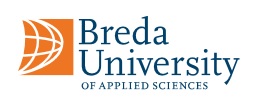Bachelor of International Hotel Management – Breda University of Applied Sciences
Breda, Netherlands
Reviewed by NVAO
- Valid from
- 30-01-2019
- Valid until
- 30-01-2025
Contact information
- Institution
- Breda University of Applied Sciences
- Website
- https://www.buas.nl/
- Country
- Netherlands
Assessment report
Panel-report-Ba-of-International-Hotel-Management-NHTVExecutive summary
The Bachelor of Hospitality Management was assessed at the request of Breda University of Applied Sciences (BU). An audit panel was convened and approved by NVAO. The audit panel studied the self-evaluation report and undertook a site visit on 26, 27 and 28 March 2018 in Breda.
Standard 1: Intended internationalisation
The programme receives the assessment good on Standard 1.
The audit panel concludes that the internationalisation goals for the programme are clear and adequately documented. The goals are well suited to a Bachelor of International Hotel Management and widely shared and supported by stakeholders within and outside the programme. Objectives have been formulated which relate well to the programme’s internationalisation goals. These objectives show an adequate balance between quantitative (percentages of staff and students) and more qualitative objectives. They are sufficiently verifiable to allow monitoring the achievement of the programme’s internationalisation goals. The internationalisation goals clearly relate to teaching and learning. The combination of internationalisation at home and internationalisation abroad definitely contributes to their quality.
Standard 2: International and intercultural learning
The programme receives the assessment good on Standard 2.
The programme uses internationally validated intended learning outcomes. All intended learning outcomes have a cross cultural and international dimension and are related to international and cross cultural skills. They focus on the development of those competencies that are necessary to work in the international professional field of hospitality and hotel management. Both the international dimension of the overall intended learning outcomes and the explicit international and intercultural learning outcomes correspond well to the programme’s internationalisation goals. The methods used for the assessment of students are suitable for measuring the achievement of the international and intercultural intended learning outcomes. The assessment of international and intercultural competencies forms an integral part of the regular course assessments. The graduates demonstrably achieve the international and intercultural intended learning outcomes.
Standard 3: Teaching and Learning
The programme receives the assessment good on Standard 3.
The content and the structure of the curriculum provide excellent means for achieving its international and intercultural intended learning outcomes. The audit panel commends the programme for the way internationalisation is integrated throughout the curriculum. The panel especially appreciates the mandatory international placement and the flexibility in the curriculum that allows additional options for internationalisation. This is facilitated by the BBA-standards and the semester structure. The teaching methods used are very suitable. The learning environment contributes to the international and intercultural intended learning outcomes.
Standard 4: Staff
The programme receives the assessment good on Standard 4.
The composition of the staff is good: 38 per cent of teaching staff either come from abroad or have at least worked and lived abroad for a minimum of five years. This facilitates the achievement of the international and intercultural intended learning outcomes. The audit panel encourages continuing the efforts to increase the number of international staff, also from other than the neighbouring countries, in order to stimulate the international and cross cultural environment even further. Staff members have wide international experience and very good intercultural competences and language skills. The services provided to the staff are consistent with the staff composition. The opportunities offered to teachers to gain international experience, intercultural competences and language skills are good.
Standard 5: Students
The programme receives the assessment good on Standard 5.
The composition of the student group (national and cultural backgrounds) is in line with the programme’s internationalisation goals. The number of international students shows an upward trend. The panel hopes this trend will continue so that the international classroom will become more robust. The international experience offered to students is excellent. The range and quality of possibilities and the guidance offered to the students are impressive. The services offered contribute to internationalisation excellently. To conclude, the audit panel considers the international character of the International Hotel Management programme to be good. Internationalisation at home and abroad are very well implemented, based on internationally recognised and verifiable goals. The range of experiences and services for both staff and students is extensive. The composition of staff and student body is good. A further increase of the number of international students and staff will strengthen the international character even more.